Assigned reading, free reading, and raising readers
My husband and I were both homeschooled and both read many books. My husband has many WWII facts memorized not from drilling or from chanting, but from reading and rereading and rereading his favorite books as a child.
I read mostly Christian romance twaddle with a side of cookbooks and everything L.M. Montgomery. But after my first couple English literature classes (which I took at the community college while I was 16 & 17), I couldn’t go back to the twaddle. I had tasted a steak dinner and couldn’t go back to sticky cotton candy.
So early on in our own homeschooling journey, my husband and I were discussing what we thought was important. My husband pointed out that what he learned best, what he still remembers, was mostly what he learned from his free time, by-choice reading, not the textbooks. My own childhood reading was less educational than his, but I also could only remember the running commentary in my head about my textbooks and not what they were about.
So, we resolved to reserve plenty of time and space in our kids lives for pleasure reading – that was as important a part of their education as anything on a checklist. Moreover, it was better that that reading not be on a checklist than that we try to make it into school, even though it is one of the most valuable parts of their education.
The reading they choose to do on their own is the reading that will impact their lives the most.
Its a common homeschool-mom question: Should we assign books? Should we let our kids read whatever they want? How can we make our kids read without killing their love of reading? The questions are good ones, and the reason it keeps coming up is that the answer is always: it depends.
Let’s talk about some of the factors that go into how you might want to answer these questions for your own kids in your own home. There is no one-size fits all solution. But there are considerations to take into account as you set up your routines and seek to build the habit of reading for your kids.
What’s the point of reading?
Before we get to talking about lists or schedules or requirements, we have to begin with our goal. We can’t move forward if we don’t know where we’re going.
Why do we want our kids to read? What kind of readers do we want them to become?
Probably we all will answer some variation of the same thing. We want our kids to be independent readers, who read for information as well as for pleasure, who pick up a book when they’re bored, and who are able to talk about what they’re reading.
Before deciding what you should do with your kids, watch each one of them.
Do they pick up books when they’re bored? Do they read when they are curious about something? Do they love following a story in a book? Does what they’re reading pop up in their play and in their conversation? Is reading a normal part of their life?
I think that our efforts in directing our kids reading should come from a troubleshooting mindset rather than a one-size-fits-all plan or, worse yet, from what some other family is doing. Comparisons are not the right starting place for making decisions or evaluations. Think of your own end-goal and see where each of your own kids is on the journey toward that goal. Where other people are, even other siblings, doesn’t matter.
What each child needs to get him to the goal will be different, so we should do what it takes to move each one forward rather than simply do our best to get our own checklists marked off.
For the child who is already a reader
What makes any person a reader? They enjoy reading. They choose to read.
Some readers have reading goals. Some readers keep track of every book they read. Some readers love to talk about what they’re reading. Some readers copy favorite bits down into a notebook. Some readers keep their own personal book reviews. But not all readers do these things.
Children are persons, too. And children can be readers. Just because they are children doesn’t mean they should have to treat their reading differently than adult readers. Adult readers have their own way of choosing books, of what they do after they’ve read a book. The common thread is that they love to and choose to read.
We can expose our children to the optional habits of readers: commonplacing, reviewing, tracking, etc. But if we start treating these habits as requirements, then we run the risk of getting in the way of the child’s – the person’s – own relationship with reading and the books.
Readers enjoy book recommendations. So we can recommend books. Very few readers can resist a book pressed into their hands with a “I think you’ll love this – give it a try.” That is very different from presenting a book list and saying, “You must read these.”
Treat readers like readers, regardless of their age. Keep them in books – that is the hardest part. Make sure you stay out of their way and don’t let the administrative concerns interfere with their own habits and choices.
Sure, you can start a book club if you want. You can ask them what they’re reading and keep a reading log yourself. You can ask them about what they’re reading over dinner. But, mostly, you simply want to make sure they have enough reading material, that when a new interest sparks, finding the right books is a priority.
For the child who can read but doesn’t
The child who can read, but who doesn’t, requires more watching and guiding. Why does he not read?
Perhaps though he can read, it’s still not easy enough for him to enjoy the process. If reading is still too laborious or time-consuming, he will avoid it. This child needs practice in easy books to build ease and fluency. Do not scorn the popcorn-reading category: Boxcar Children, Hank the Cowdog, etc. These series help a young reader gain confidence in his ability.
Another possibility is that the child has too many other options to fill his time that are easier. If the schedule is overfull and he never has the spare moment where he’s wondering what to do, he will not learn the habit of turning to books. Reading requires quiet spaces, and sometimes it requires boredom as a prerequisite. If he spends spare time in front of a screen of any kind – apps, computer games, tv shows, movies – he will not learn the habit of turning to books. Reading asks more of the mind than visual media, so those with the screen-habit find it difficult to shift into reading mode.
We had a child like this in our family. He was particularly drawn to the computer, and though he could read, he never picked up a book by his own choice. So, we told him he could only have computer time for an hour or two on the weekends. I wasn’t sure he’d ever be able to sit still long enough to become a reader. At first he moped around for a day or two, then he picked up a book. Now, he reads hours a day without my ever saying a word – as long as his screen time is strictly kept in check.
Another problem might simply be that the child who can read but doesn’t hasn’t yet found the book that has sparked the joy of reading yet. Make it your mission to try out all sorts of genres and levels. You might have to assign reading for a time to get him to try out the books you’ve found. But eventually, if you keep persisting, you’ll probably strike gold when you least expect it and he’ll be off.
For the child who is not yet a fluent reader
Practice, practice, practice is what the non-fluent reader needs, but they also need a gentle touch. It’s easy to get discouraged when something is hard, and it’s even worse when you feel like you’re not measuring up to expectations.
Audiobooks help meet the need for stories and for fueling a love of books when reading them silently isn’t happening.
Although practice is helpful and necessary, I would be careful not to burden the budding or struggling reader with reading requirements. If the child begins to associate reading with failure, they are less likely to become active, engaged, enthusiastic readers. Better that it take a little longer to get to the end goal than they be discouraged from reaching it – because the end goal is enthusiastic volunteer readers, not merely reading.
Of course if reading seems to be more of a struggle than it should be, it’s worth looking into diagnostics and helps. It might be dyslexia. The child might need glasses. Troubleshooting is an important part of our job as homeschool moms.
Assigned reading v. free reading in our homeschool
So, I do my best to handle reading requirements with a light touch in our house. There are good books I don’t want them to miss. There is value in keeping track of what’s read. It’s good to keep a varied diet rather than become myopic and obsessed.
Here’s what we’re doing now. Currently, I have two fluent lovers-of-books, one young reader who needs screen time limited for books to be preferred, and one slow-and-steady reader who is not yet at fluency.
For the two middle school readers, I have a spot on their weekly checklist where they choose one story, one book on the natural world, and one history book. They choose from our shelves or from the library (sometimes we browse the library catalog together during Monday Meeting) and fill it in on Monday. During our one-on-one Monday Meeting, we go over the week and I ask about last week’s choices – if they finished, what they thought, etc. – and they move over a title if they didn’t finish. They also check out other books from the library on random topics. They also flip through Calvin and Hobbes or a favorite reread or Eyewitness books. The spot on their weekly list accomplishes three things:
- It helps remind them to keep a broad interest going and choose books they might not automatically choose. (I know I can poke them here because they are solid self-identifying readers)
- It helps me have a clue what they’re reading and what they’re interested in (the history or science topics do not have to correspond to their current studies – their history choices are usually about WWII).
- It gives us an excuse and a prompt to talk about what they’re reading in a way that is simply me inquiring and them in the driver’s seat. It is their selection, their choice; they own this section of their weekly list. This helps the entire weekly list be more their own rather than a list of dictatorial requirements.
For my young reader who is new to the world of obsessive reading:
We have a spot on his list to write down the books he’s reading during Monday Meeting. He wants to be like the older kids, so he loves this. He doesn’t have to have certain kinds of books or certain numbers, I just ask him what he’s reading right now, whether he finished the book he was reading last week, and what else he’s been reading.
His list also includes reading a picture book aloud to his younger sister. Reading aloud helps solidify reading skill because it slows the reader down and forces him to look at and read every single word (fluent readers reading silently typically do not).
For my reader who needs more practice to reach fluency:
Her weekly list has a spot to fill in one currently-reading book and one audio book. The same book goes on the list multiple weeks in a row, because she doesn’t read for long sustained times yet. That’s totally fine and I ask her about her favorite parts from the week or what she thinks.
She is also assigned to read her younger sister a book most days, and I keep on hand a selection of early readers that are easy and fun (Cynthia Rylant to the rescue!) for her to choose from. She gets to add these books to her reading list, too, even if she read them before.
I don’t require a number of pages or chapters or even time. If I haven’t noticed them grabbing their books during lunch or afternoons or bedtime, I’ll ask how their book is coming – sometimes they need help finding it. Reading isn’t a requirement they have to check off before they can play computer or play with friends – I want it to be a choice, not a chore. However, they have enough ways to lose both computer and friend privileges that they are often enough left with reading as their main option – but without reading being the bone of contention or required prerequisite. Plus, just because it happens at bedtime doesn’t mean before-bed reading doesn’t “count” – we’re looking for a lifestyle of choosing books, and ending the day with reading fits right in.
The main thing I try to keep in mind as I talk to the kids about their book choices or build in accountability or make sure there’s time and space and books is that each one of them are individual readers. They are persons. How would two book-loving friends talk about their current reading picks? That’s how I try to keep our conversations’ feel.
Raising Readers FAQ
Feel free to add to the questions in the comments – and also add to the answers!
What if they don’t finish a book?
I don’t care. Sometimes I don’t finish books. Readers are allowed to do that. They can have their own relationships with books, and that means being allowed to taste-test without finishing.
What if they pick twaddle?
I don’t recommend twaddle to them and I never purchase twaddle, but sometimes it wanders in from the library temporarily. I will not read twaddle aloud, but if there is a little here and there to help them discover what is good by way of contrast or to help them with their reading fluency, then I don’t sweat it.
I see three different levels of twaddle:
- TV-character-knock-off twaddle – i.e. not even books, really,
- Stupid stories with poor language usage, and
- Twaddle that encourages and models bad attitudes and disrespect. #2 is the only kind that sometimes makes it into our house, and then only briefly.
Books that are light reading are not twaddle. They might not be classics. They might not have great literary value or a meaningful message, but they aren’t bad. In fact, I think they are necessary for keeping up volume and excitement. A reader is known by the books that he reads, and there’s nothing quite like the experience of checking out a stack of ten books from the library and reading them all before returning them a week later. That’s the sort of experience that helps a child define himself as a reader – it’s vital. Those light reading mega-series like Hardy Boys, Boxcar Children, Hank the Cowdog, Redwall, etc. are an important part of creating a child who self-identifies as a reader. I don’t discourage or disdain or disrespect a child’s obsession or binge-reading in the slightest.
What if they never pick classics?
Then read them aloud, turn them on as audiobooks in the car, or do a book club with a few classics you think they would like if they tried it. Don’t push your taste or expectation on their free reading, though, or crowd out their free reading with your required reading.
I believe a child who identifies himself as a reader will, eventually, improve the quality of what he reads when he’s exposed to better quality. For me, that didn’t happen until college, but I probably wouldn’t have fallen in love with those books and that kind of reading had I not already self-identified as a reader and had so many hours of reading enjoyment under my belt. I was ready for the next level.
Let the children have lots of hours of reading enjoyment, and the taste will most likely come when exposure hits at an opportune time. You can watch for that opportune time, you can offer selections, but don’t try to make them into a reader after your own likeness – it won’t work.
What do I do about all the books all over my house?
See them as evidence of your success, not failure. Such is the home where readers read.
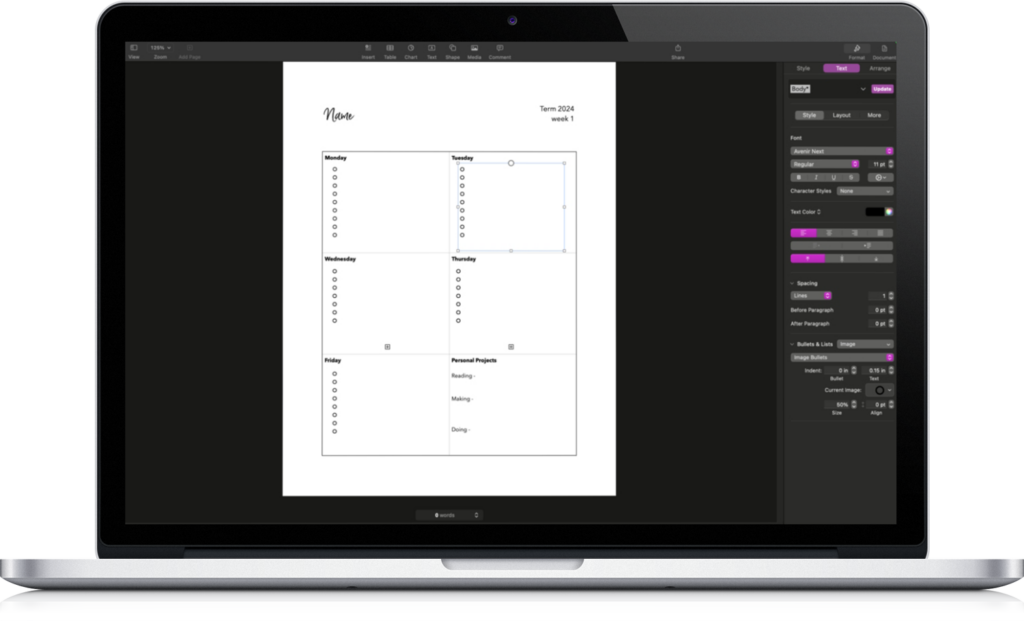
Get 5 of my favorite homeschool checklist templates!
Jumpstart your homeschool checklist practice by starting with one of my proven formats. Open, edit, and make them your own! Plus, get tips and followup, too –

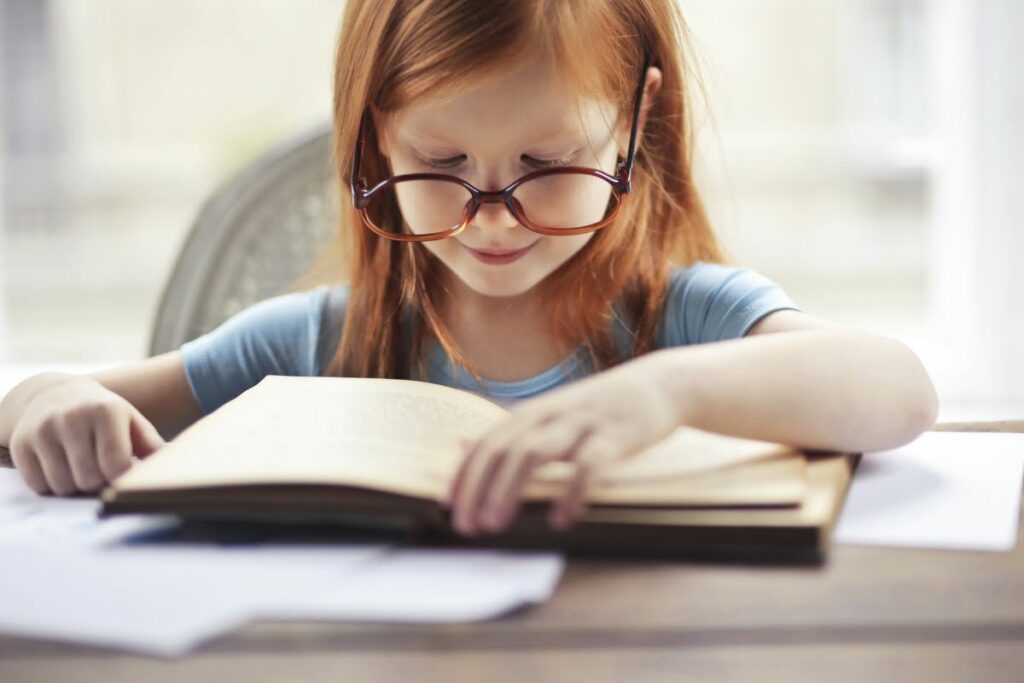
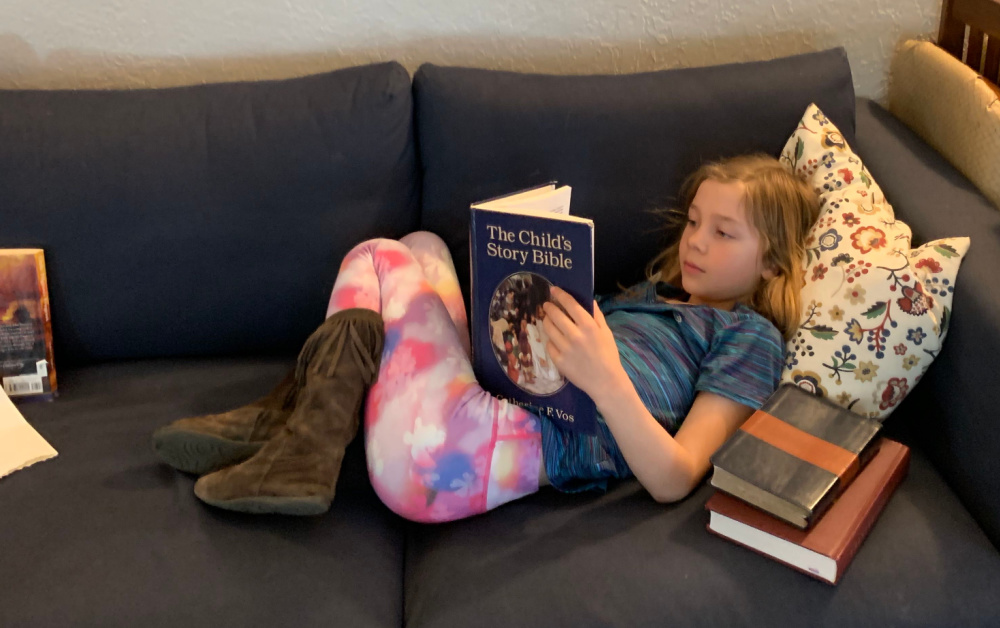
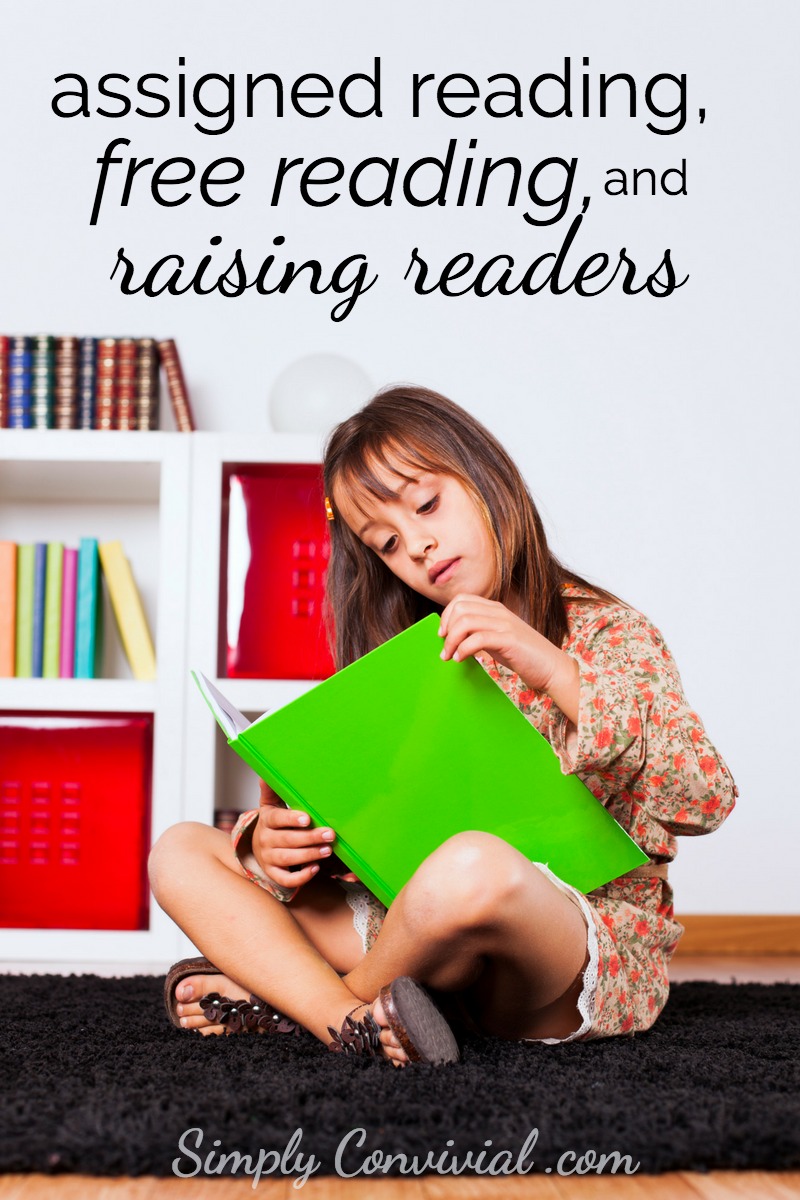


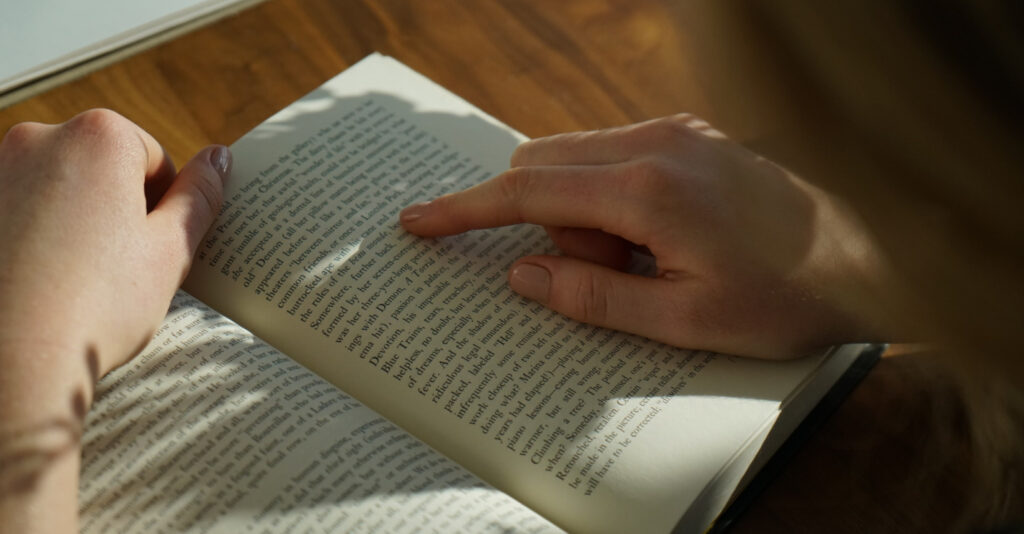
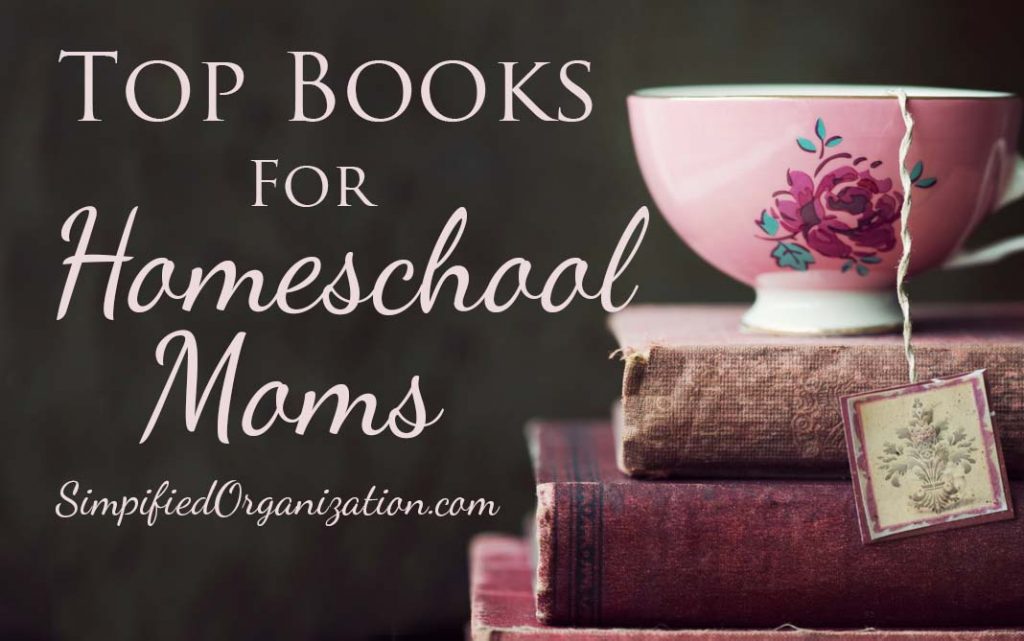


I think you bring up some good points about twaddle vs. light reading. I believe there is a bridge period from beginning to mature readers and this is the time to build excitement in reading, which is partially derived from fluency. If the child is expected to make a leap right to classic literature, without that time of light reading to build fluency, it could be more harmful than helpful. There are some fabulous beginning readers that are not twaddle.
Also, I think in some cases, light reading can help develop a taste or desire for deeper, more difficult reading. For example, I personally would consider myself an avid reader as an adult, but totally was not as a child. My parents read to me as a child and I was not a struggling reader, but for whatever reason, I didn’t read for pleasure, only for school. Later in life, as an adult, I became interested in Oprah’s Book Club (yes, I used to be one of those ;-) and started reading her suggested novels, some of which were light reading, but some of which were quite deep and had a variety of themes/topics. Eventually, I started to hang out at the library. I joined a couple of book clubs. There I began to meet avid readers. I was impressed by some because their intellect seemed to surpass the general population of non-readers. Conversations began where I didn’t know or understand references that were being made because though I was educated, I wasn’t well versed. I have always appreciated intellectual stimulation and reading seemed to hold the key that would open a new door. This door lead me to the classics and eventually homeschooling, which has pushed that drive even further.
This was really long to say that I agree light reading can lead to deeper academic reading ;-)
I also totally agree with reading classics aloud or listening to audios or starting a book club in order to develop that taste in our children. All of which we have done. My kids now mostly prefer more intellectual reading and can pick out twaddle instantly.
Lastly, What do I do about all the books all over my house?…my motto, never too many books, only not enough shelves ;-)
Great post!
Mystie, I have two girls (8 and 10) who can read very well, but never pick up a book by themselves. Computer/TV are not a problem. They spend all their time playing with friends and running outside and…well….moving. I do make them read during schooltime, they are free to choose their books. But telling them they can’t play with friends and need to sit and read a book, will go over like a lead balloon. Reading at bedtime doesn’t work, they are asleep when their heads hit the pillow.
(Thankfully their 12yo and 5yo siblings are readers.)
Any suggestions to get them to read more?
Sounds like a book club! Engage the friends as well. Ages 8 and 10 are perfect for Understood Betsy by Dorothy Canfield Fisher….which IMHO, is a book not to be missed ;-)
Right! Telling them they have to sit and read would not have the effect we’re going for. But surely sometimes they are sick, or the friends are sick, or the weather is bad….and they’re wandering around bored….then a well-placed book might hit the spot. I wouldn’t restrict their play, but just watch for those moments. Also, if they can read well and they do get practice and they do see others reading for fun, then it’ll come…they’ll get a little older and want to run and play less and they’ll likely turn automatically to story-worlds when they hit the moody years. :) Outdoor free time is equally important, and not something that ruins the taste for reading (like screens do), so I wouldn’t worry about it and just wait. It’ll come.
LOVE this, so much!
And I definitely think we need more categories than Twaddle / Not Twaddle. Because there are different issues at work. Frankly, there is some Literature, falsely so called, that does not deserve my time (or my children’s time). It isn’t twaddle, but it isn’t edifying either. (I am here thinking of books that glorify sin, or deny reality, not things that are merely “light reading”.)
I do find that movie / Disney type tie-ins can help motivate a reluctant reader. Because I won’t read them aloud, so they have to do it themselves. ;)
Well said! I have one who just recently got “hooked” on reading and now reads a LOT. The series that did it? How to Train Your Dragon (to which I roll my eyes and yet–if this is his reading gateway, I’m all for it!). I also have started reading books aloud and then strategically waited a while to finish whilst leaving said book lying around…. that’s helped a couple of mine shift from just series to harder/richer books. And when we’re studying deep concepts during the school year, I’ve seen even my strong readers shift back to light series reading for a break! And one kid of mine is plodding (voluntarily) through White Fang because his mother handed him Gentle Ben last year. Both books are work for him, so he has tended to go back and forth between them and something lighter, but what a sense of pride and delight he had when he finished Gentle Ben! (And will have when White Fang is complete).
Do you have some additional recommendations for that “popcorn-reading” category you mentioned for a young boy? It is definitely a value for me to avoid the twaddle (though we do end up with some of the #2 type you mentioned), but my younger son is needing some more light reading, as he is a developing reader still, figuring out his “type” of books and finding his feet with it a bit. He is not yet a fluent reader but has taken a huge leap forward this past few months.
We don’t have access to a good library or bookstores (living overseas), so it is helpful if they are available on kindle, at least to try out a series before we jump in on buying and getting them here.
Childhood of Famous Americans is a series I invested in (used copies) because of Cindy Rollins’ recommendation – my boys loved those. Encyclopedia Brown & Nate the Great. Right now my daughter is reading Happy Hollisters. The original Hardy Boys or Nancy Drew and Boxcar Children. Hank the Cowdog. All of these are series. I also browsed the AO free reading book lists for the younger years and built a library with a lot of free kindle light reading.
Anyone else? What would you add?
Thanks! I’ll check out the AO lists for sure. We do have some Encyclopedia Brown and Nate the Great. He likes Nate the Great more, but hasn’t pulled them out for himself, so I should put those in a stack/basket for him.
I keep thinking I should try the original Hardy Boys series for the boys since they actually are available here. Somehow we’ve ended up with books in two “spin off” series, and they are shockingly bad! So disappointing from an original series that so many people recommend and like.
Yes, definitely Childhood of Famous Americans as well as Dan Frontier series, Billy and Blaze series, Dr. Seuss, Little House on the Prairie (our son particularly liked Farmer Boy), books by Clyde Robert Bulla, Marguerite D’Angeli, and Meindert Dejong, The Littles, and animal books by Thornton Burgess . If you’re looking for a historic bent, the D’Aulaire books are a must as well as books by Jean Fritz and Dalgliesh, Other titles may include, Stone Fox, Sarah Whitcher’s Story, Matchlock Gun, Mr. Popper’s Penguins, The Apple and the Arrow, Owls in the Family, Amelia Bedelia, The Whipping Boy,,,,,sorry, I could go on ;-)
I also check AO’s free reads, as well as Sonlight and Veritas Press lists. If you go to Heart of Dakota’s website, under their Drawn Into the Heart of Reading program, you can look at the optional book packages. They’re arranged by reading level. There are some excellent titles listed there as well.
I have an 8 year old who is dyslexic and does not like to read. She loves listening to audio books and will look through books, but not read them. I also have a six year old who is learning to read. Should I just let them look through books and hope as they become more fluent they will start reading them?
I have a child with dyslexia. I did not assign any books for him to read until last year, age 11/5th grade….and then, only after he finished his lessons at the Children’s Dyslexia Center and was ready to graduate from the program. At that point, I picked a handful of books. He and I looked through them together. We talked about content, story line, etc, also looking at number of words on the page, white space in the margins, length of chapters, etc. He then decided which book he would read. One term (12 weeks) he read the Landmark series Alexander Graham Bell and another term, he read The Incredible Journey…then we watched the movie as a family when he finished. It was so fun for him to know what the story was about and to be new to the rest of us. I loved hearing him talk/narrate us through it. It showed that he was ready and totally understood what he read. Up until that point, I had either read everything to him or he listened to audio books or an older sibling read to him.
I personally wouldn’t recommend pushing the reading, particularly because it is so difficult and not just difficult because they’re just learning to read like a non-dyslexic, but so difficult because they really do have a learning disability. I think there is no greater kill joy than to be forced to do something that you really can’t or are not ready to do.
With that said, it’s super important that you’re reading aloud or giving her audios much above her reading level because I’m sure her auditory comprehension is high and you need to feed it so that when she does start reading, she will have an adequate vocabulary and understanding of the language.
Based on my experience, remediate the dyslexia, then work on independent reading beginning at her comfort level to build confidence. Our son has always loved books. He always begs to be read to. Even now, he prefers me to read it instead of doing it himself, but because I haven’t pushed, his confidence is building. He is now taking his turn reading aloud in youth group instead of passing, which is a beautiful thing especially since there was a day when we didn’t know if he would ever read. Hang in there :)